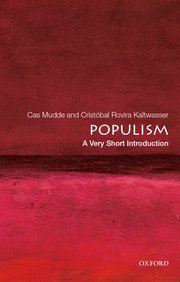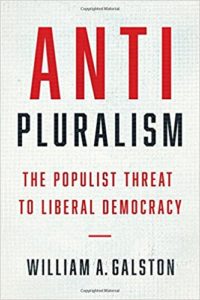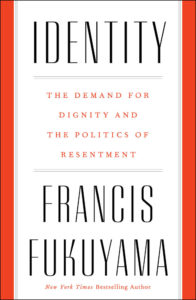 Sweden, the last Scandinavian country to withstand the tide of populism that’s swept across Europe, is on the brink, analyst Anders E Borg writes for Bloomberg:
Sweden, the last Scandinavian country to withstand the tide of populism that’s swept across Europe, is on the brink, analyst Anders E Borg writes for Bloomberg:
Other Nordic countries like Finland and Norway have had sizable, right-wing populist parties in parliament for a long time. Yet they remain open, welfare states with a strong track record of growth. There is no reason to buy into the nightmare scenarios that are being floated around…..But the longer term is a different story, and investors may not be concerned enough about it. The rise of the Sweden Democrats shows the cracks in the Nordic model are widening.
Sweden, long considered “a moral superpower,” as the political scientist Lars Tragardh put it, has traditionally welcomed immigrants. But that is changing under the pressure of globalization, immigration and anxiety about national and cultural identity. As in Germany and France, parties of the extremes, of the left and especially of the right, are increasing their support at the expense of those that have traditionally dominated, The New York Times adds:
 Sweden “is joining the rest of Europe,” Carl Bildt, a former prime minister from the center-right Moderate Party, said with evident sadness. “And the myth of the Sweden model is melting away.”….. Political elites here as elsewhere “underestimated how much people still live in national democracies,” not some global stew, said Professor Tragardh, who teaches at Ersta Skondal Bracke University College.
Sweden “is joining the rest of Europe,” Carl Bildt, a former prime minister from the center-right Moderate Party, said with evident sadness. “And the myth of the Sweden model is melting away.”….. Political elites here as elsewhere “underestimated how much people still live in national democracies,” not some global stew, said Professor Tragardh, who teaches at Ersta Skondal Bracke University College.
“It’s difficult to single out the most likely (government) scenario” after the election, University of Gothenburg political scientist Ulf Bjereld told AFP. “Instead you have to look for the least unlikely scenarios,” he said.
In fact, values are at the heart of this Swedish election campaign, judged by many to be the most crucial in decades for the Scandinavian country of 10m people. A combination of worries about the future of Sweden’s famously generous welfare state, immigration and the spread of populist rhetoric is causing a historic realignment in the nation’s politics, the FT’s Richard Milne adds:
The problem for the Sweden Democrats is that in spite of attracting the support of about one in five Swedes according to the latest opinion polls, none of the other national parties wants to negotiate with them or even talk to them — because of their neo-Nazi origins. That limits their influence and rules out their chance of joining any government which results.
 The Swedish election will serve as a bell-weather for Europe’s changing politics, notes Scott B. MacDonald, the chief economist at Smith’s Research & Gradings.
The Swedish election will serve as a bell-weather for Europe’s changing politics, notes Scott B. MacDonald, the chief economist at Smith’s Research & Gradings.
“It follows a series of electoral contests in 2018 that have included the Netherlands, Germany, France, Italy and Austria —all of which witnessed strong challenges by far-right nationalist-populist parties and two cases in which those parties achieved power,” he writes for The National Interest. “Sweden is not likely to see such a dramatic outcome, but a strong showing by the SD will indicate that the drama of radical political change in Europe is hardly over and that the political thunder on the far right is not a passing fancy.”
The poll is a further indication of the growing salience of the identity politics underpinning the populist resurgence, observers suggest.
 “This election is a struggle about values and Swedish identity,” said Ulf Bjereld, a professor of political science at the University of Gothenburg and an active member of the Social Democrats. “The question is how to keep Sweden in the forefront of liberalism and social democracy versus stronger support for the nation state and borders. Who will Sweden be in this struggle? We’re just at the beginning of this debate.”
“This election is a struggle about values and Swedish identity,” said Ulf Bjereld, a professor of political science at the University of Gothenburg and an active member of the Social Democrats. “The question is how to keep Sweden in the forefront of liberalism and social democracy versus stronger support for the nation state and borders. Who will Sweden be in this struggle? We’re just at the beginning of this debate.”
In place of the Left-Right ideological split defined by issues revolving around the relative economic power of capital and labor that characterized 20th-century politics, says Stanford University’s Francis Fukuyama, we now have a political spectrum organized increasingly around identity issues, many of which are defined more by culture than by economics narrowly construed, argues in his new book. This shift is not good for the health of liberal democracy, adds Fukuyama, a board member of the National Endowment for Democracy. RTWT







